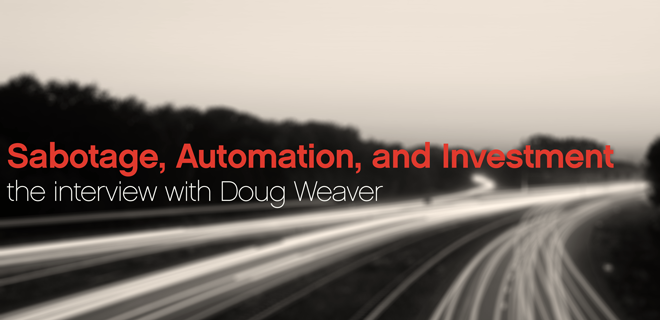

Q: Doug, in your role as your role of founder and CEO of the Upstream Group, you work with a lot of media sellers. Have you seen over time the need for media sellers to understand more of the operational side of the business? Is this ultimately a good thing?
I think that any organization that allows sales and operations to remain segregated from one another is sabotaging its own future. What a customer is buying from you is not impressions or metrics: it’s an experience. You should be organized to give clients an excellent experience every time your company touches them. How can you do this if the person who sells the deal doesn’t understand the person who has to make it a reality. And vice versa.
Q: In a recent article on your blog, you say, “The simple truth is that in the relentless pursuit of margin growth and short term victories to drive cash flow, agencies long ago stopped defining themselves.” Could the same be said for publishers?
I think that publishers have plenty of issues on their plates, but I don’t think I’d put them in the same basket with agencies on this particular one. I think publishers – and some networks – have done a reasonably good job of creating brand experiences for their customers. Customers know one from another and they know what the business experience will be like. They’re by no means perfect at it &mdash they can be terribly inconsistent – but for the most part media companies now have the kinds of personalities and business brands that agencies used to enjoy.
Q: The tile of your session at OPS is “The Future of Ops: Greater Than (Not Equal To) Automation“. It sounds like you feel that operations folks won’t be made obsolete anytime soon. Can you explain?
What automation takes away are a lot of the repetitive, left-brain functions. Match these parameters with those available units. If you’re simply managing choice between different factual selections, that’s better done by a machine. I see operations taking on an even more important role going forward, and it’s going to demand the emergence of some great, right-brain operational thinkers. Operations should be the ones looking at the health and capacity of the system and being willing to occasionally save sales from itself. The focus shifts from “What could we do?” to “What should we do?”
Q: So much investment in online advertising has been focused on automation based on the potential dollars that will flow once it’s easy to buy online. That’s only one part of the equation, isn’t it?
A lot of capital has gone into taking friction out of the process. But I think it’s a flawed assumption to say that advertisers are simply going to turn away from TV and start pouring tons more money online simply because we’ve reset handling costs. I don’t think there are a lot of brands out there staying awake at night thinking about cheaper process. We have yet to answer the question “how does digital create new value.”
Q: Automated buying completely or significantly removes the relationship aspect between a buyer and a seller. How do you feel about this direction our industry is going?
If all the buyer and seller are doing is negotiating a commodity transaction paid for with someone else’s money, then they deserve to be disintermediated. As I said before, once the repetitive left-brain stuff gets taken away – and it will – a lot of people will be exposed. We’re all going to be challenged to say what value we’re creating beyond the transaction. The best of us – in Sales, Operations, and agencies – are already rising to that challenge
Doug will be delivering a keynote address at OPS New York on October 6. Don’t miss this session and many others. Register today!”